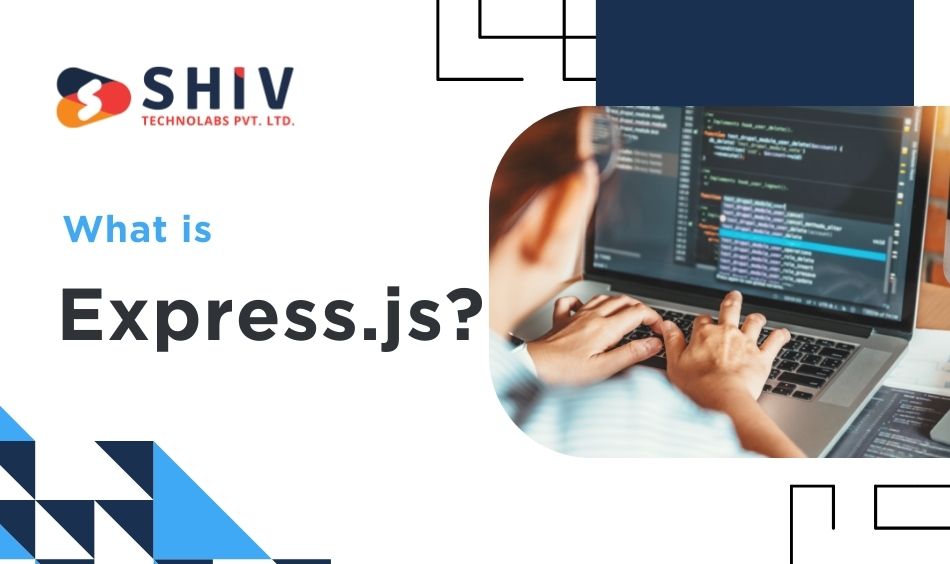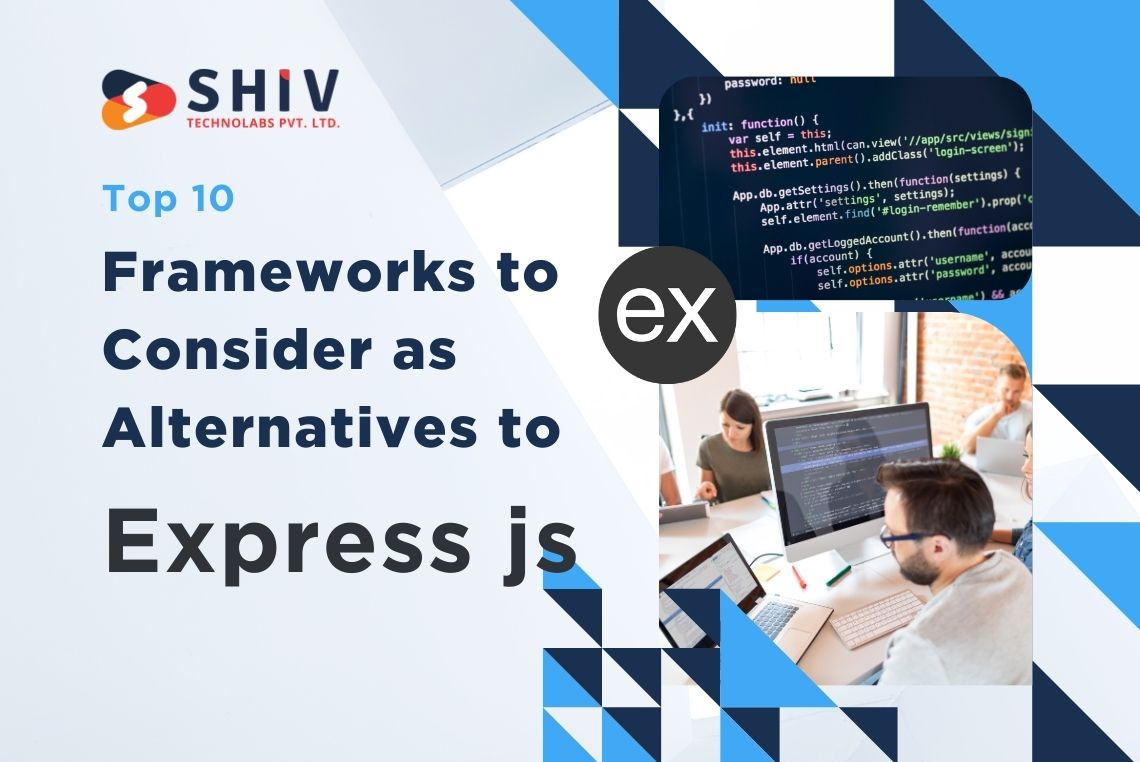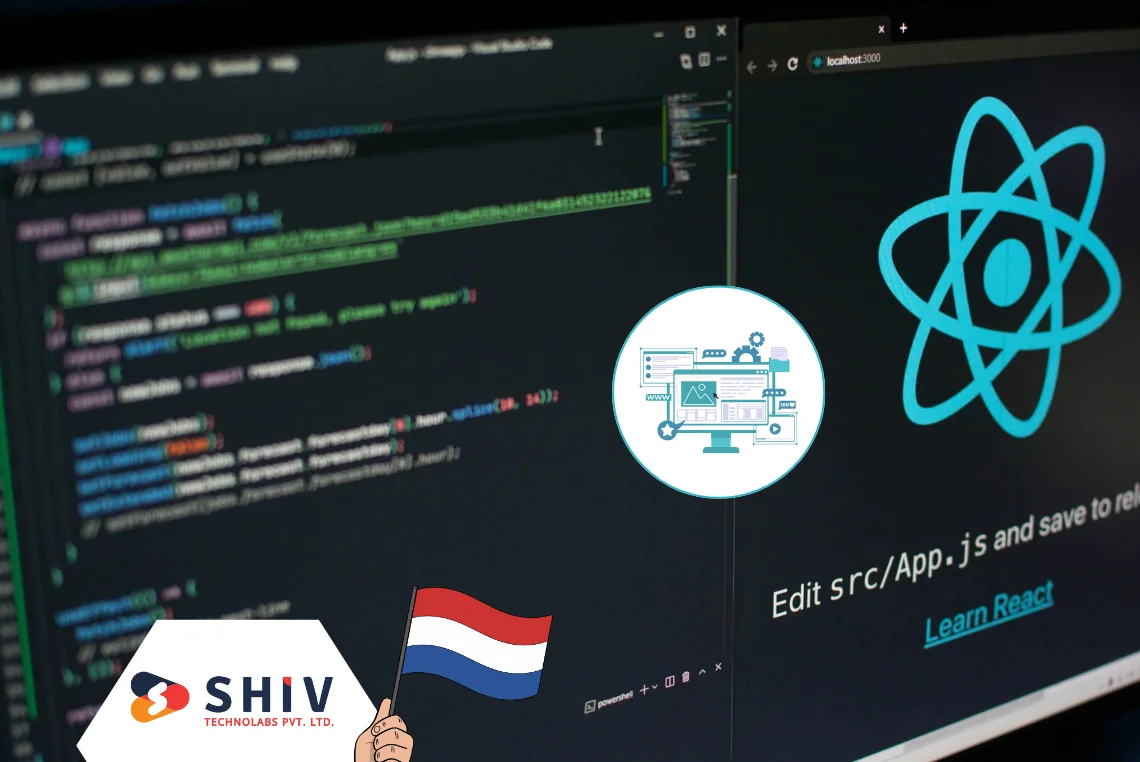Table of Contents
In the ever-evolving domain of web development, selecting the most appropriate framework is crucial for achieving both efficiency and scalability in application design. As the landscape becomes increasingly diverse, understanding not only the prevalent options but also their alternatives can significantly influence decision-making. This discussion focuses on Express.js, a leading Node.js framework, and examines various powerful alternatives that might better suit specific project requirements.
In the realm of web development, the choice of framework can significantly affect the outcome of a project. According to a 2023 survey by Stack Overflow, Express.js remains one of the most widely used frameworks for Node.js, with over 30% of developers reporting its adoption for their projects. However, the rise of alternative frameworks has shown a growing trend towards exploring new solutions that might better fit specific needs. Fastify, for instance, has seen a 25% increase in usage due to its performance-oriented design, while NestJS has gained traction for its modular structure, appealing to a broad range of development scenarios.
Statistics from the State of JavaScript 2023 report reveal that frameworks like Koa and Sails.js are gaining popularity for their unique features. Koa’s modern JavaScript support and flexible middleware have made it a choice for 15% of developers, while Sails.js has attracted 10% of the community with its real-time capabilities and MVC architecture. As businesses continue to focus on delivering high-quality web applications, the variety of frameworks available allows web developers to select tools that best meet their project requirements and goals.
What is Express.js?

Express.js, commonly known as Express, is a minimalist web framework designed for Node.js that streamlines the process of building web applications and APIs. Since its introduction in 2010 by TJ Holowaychuk, it has emerged as a prominent choice within the Node.js ecosystem. Express provides a foundational layer of web application features, simplifying tasks related to HTTP handling and allowing developers to concentrate on core business logic.
At its essence, Express simplifies routing, middleware integration, and request management. It allows developers to define routes and manage HTTP requests efficiently, making it easier to construct both server-side logic and RESTful APIs. The framework’s flexible and unopinionated nature ensures it can be adapted to various project needs and architectural preferences.
# Advantages of Express.js
- Simplicity and Minimalism: Express is designed with minimalism in mind, which helps developers quickly get started without facing a steep learning curve. Its straightforward API supports efficient development, minimizing the need for extensive configuration.
- Middleware Support: The middleware system in Express is a significant advantage, enabling developers to insert functions that can modify requests and responses or handle errors. This capability enhances the handling of HTTP requests and responses, allowing for greater customization and control.
- Routing: Express features a powerful routing system that provides flexibility in defining routes based on HTTP methods and URL patterns. This granularity ensures that developers can manage requests with precision.
- Performance: Known for its high performance, Express benefits from its lightweight nature, allowing it to handle numerous concurrent requests efficiently. This characteristic makes it suitable for applications requiring rapid responses and high throughput.
- Community and Ecosystem: The extensive community support for Express contributes to a rich ecosystem of plugins, extensions, and third-party libraries. This vibrant community can enhance development by offering various tools and resources.
- Flexibility: Unlike frameworks that impose strict architectural patterns, Express offers the freedom to design applications according to specific needs. This flexibility supports diverse project types and sizes.
- Compatibility: Express is compatible with various view engines and template engines such as EJS, Pug, and Handlebars. This compatibility ensures easy integration with different front-end technologies and rendering methods.
- Scalability: The non-blocking I/O model and asynchronous nature of Express align well with Node.js’s event-driven architecture, making it an effective choice for building scalable applications.
- Error Handling: Express simplifies error handling through its middleware approach. Custom error-handling middleware can be defined to manage different error types effectively, ensuring robust application behavior.
- Development Speed: The framework’s simplicity and rich ecosystem can enhance development speed, allowing developers to quickly set up applications and focus on implementing core functionalities.
Top Alternatives to Express.js

Although Express.js is a widely used framework for Node.js, there are several other frameworks that might better suit specific project requirements or offer different features. Below is a detailed look at various alternatives, highlighting their distinctive qualities and advantages.
1) NestJS
NestJS is a TypeScript-based framework designed for building scalable server-side applications. It incorporates modern development practices and architectural patterns to create efficient, maintainable, and testable code.
Advantages:
- TypeScript Integration: NestJS is built with TypeScript, offering benefits such as type safety, advanced language features, and improved code quality.
- Modular Architecture: The framework promotes a modular design where code is organized into discrete modules, enhancing maintainability and scalability.
- GraphQL Support: NestJS integrates seamlessly with GraphQL, allowing developers to build flexible and efficient APIs that support complex queries.
Core Features:
- Dependency Injection: Employs a dependency injection system that simplifies the management of services and components, improving modularity and testability.
- Decorators: Uses decorators to define routes and other configurations, which makes the code more readable and manageable.
- Microservices: Includes tools for creating and managing microservices, facilitating the development of distributed systems and scalable architectures.
2) Nuxt.js
Nuxt.js is a framework for creating Vue.js applications with a focus on server-side rendering (SSR) and static site generation. It extends the capabilities of Vue.js, making it suitable for complex front-end development.
Advantages:
- Server-Side Rendering: Supports SSR, which enhances SEO and improves initial load times by rendering pages on the server before sending them to the client.
- Automatic Code Splitting: Automatically splits code into smaller bundles, which improves loading performance by only loading necessary parts of the application.
- Vue Ecosystem: Integrates with the Vue.js ecosystem, providing access to a range of tools and libraries for building interactive user interfaces.
Core Features:
- Modular Architecture: Includes a modular system for adding and managing features, such as authentication and analytics.
- Static Site Generation: Offers static site generation capabilities, which can improve performance and simplify deployment for certain types of applications.
- Component Integration: Facilitates the use of Vue components, allowing for the creation of dynamic and responsive user interfaces.
3) Koa
Koa is a minimalist framework created by the team behind Express.js. It aims to provide a more modern and flexible foundation for building web applications and APIs by using contemporary JavaScript features.
Advantages:
- Modern JavaScript: Built with modern JavaScript features such as async/await, which simplifies asynchronous code and improves readability.
- Expressive Middleware: Offers a more expressive middleware system compared to Express, giving developers finer control over the request-response cycle.
- Lightweight: Koa’s minimalist approach reduces overhead, resulting in faster execution and reduced resource consumption.
Core Features:
- Context Object: Uses a context object to manage requests and responses in a single place, enhancing code organization and clarity.
- Custom Middleware: Allows for the creation of custom middleware functions, providing flexibility in how requests and responses are processed.
- Async Support: Fully supports asynchronous programming, making it easier to handle complex operations and errors.
4) Hapi
Hapi is a framework designed for building applications and services with a focus on configuration-driven development and extensive feature set. It is known for its flexibility and robustness in handling complex scenarios.
Advantages:
- Configuration-Driven: Emphasizes configuration-driven development, which simplifies the definition of application behavior and settings.
- Input Validation: Includes built-in support for input validation, which helps maintain data integrity and security.
- Extensible Plugins: Offers a powerful plugin system for extending functionality and modularizing application components.
Core Features:
- Request Handling: Provides advanced options for managing and processing HTTP requests, including sophisticated routing capabilities.
- Plugin System: Features a flexible plugin system that supports modular development and easy extension of application features.
- Protocol Support: Supports various protocols beyond HTTP, such as WebSocket, allowing for additional functionality.
5) AdonisJS
AdonisJS is a full-stack framework for Node.js designed to provide a complete solution for modern web development. It offers a range of built-in features that support both front-end and back-end development.
Advantages:
- Full-Stack Solution: Includes a complete set of features for building both the back-end and front-end of applications, such as ORM, authentication, and routing.
- MVC Pattern: Implements the MVC architectural pattern, which helps in organizing code and maintaining a clear separation of concerns.
- Command-Line Interface: Provides a CLI for managing project tasks and workflows, which can boost development productivity.
Core Features:
- ORM: Comes with Lucid, an ORM for managing database interactions and providing tools for querying and handling data.
- Authentication: Offers built-in authentication mechanisms to manage user access and enhance security.
- Task Scheduling: Includes task scheduling capabilities for managing background jobs and periodic tasks.
6) Fastify
Fastify is designed to be a high-performance framework for Node.js, focusing on providing fast response times and low resource consumption. It is particularly suitable for applications that need to handle a large volume of requests efficiently.
Advantages:
- Performance: Fastify is optimized for speed, with a focus on minimizing overhead and maximizing throughput. It is well-suited for high-load environments.
- Schema-Based Validation: Utilizes JSON Schema for request and response validation, which improves data integrity and application security.
- Low Overhead: The framework is lightweight, reducing unnecessary processing and resource usage, leading to improved application performance.
Core Features:
- Asynchronous Programming: Fully supports modern asynchronous programming techniques, including async/await, which simplifies error handling and code management.
- Plugin System: Provides a flexible plugin architecture for extending functionality, allowing for modular development and easy integration of new features.
- Built-in Logging: Comes with an efficient logging system to track application performance and troubleshoot issues.
7) FeatherJS
FeatherJS is a framework that simplifies the creation of real-time applications and RESTful APIs with a focus on flexibility and extensibility. It integrates well with various front-end and database technologies.
Advantages:
- Real-Time Functionality: Built-in support for real-time communication through WebSockets makes it easy to implement features like live updates and notifications.
- Service-Based Architecture: Encourages a service-oriented approach, which helps in designing and managing application components as independent services.
- Database Agnostic: Supports a range of databases, providing flexibility in choosing the appropriate data store for different use cases.
Core Features:
- Service-Based Design: Promotes the use of services to handle specific functionalities, making it easier to manage and scale applications.
- Custom Hooks: Offers hooks that allow custom code execution before or after certain events, providing flexibility for application logic customization.
- Easy Integration: Integrates easily with other technologies and frameworks, supporting a variety of development needs.
8) Sails.js
Sails.js is a Node.js framework designed to help developers build data-driven APIs and applications using the MVC (Model-View-Controller) pattern. Its structure is aimed at simplifying the development of applications with a focus on real-time features.
Advantages:
- MVC Pattern: Sails.js enforces the MVC pattern, which helps in organizing code into distinct components (models, views, controllers). This approach promotes cleaner code and easier maintenance.
- Real-Time Capabilities: Built-in support for WebSockets enables real-time communication between the server and clients. This feature is essential for applications like chat apps or live notifications.
- ORM Integration: The framework includes Waterline, an Object-Relational Mapping (ORM) library that supports multiple databases, including SQL and NoSQL options. This provides a unified way to interact with different types of data stores.
Core Features:
- Automatic REST API: Sails.js can automatically generate RESTful APIs based on data models, speeding up the development process.
- Blueprint API: Offers a blueprint API that can be customized to meet specific needs, allowing rapid prototyping and development of standard operations.
- Flexible Middleware: Provides support for custom middleware, enabling developers to insert functions to process requests and responses as needed.
9) Ember.js
Ember.js is a front-end framework that provides a structured approach to building ambitious web applications. It emphasizes conventions and best practices to simplify development and promote consistency.
Advantages:
- Convention Over Configuration: Follows a convention-based approach to minimize the need for extensive configuration, allowing developers to focus on building features.
- Two-Way Data Binding: Provides two-way data binding to automatically synchronize changes between models and views, improving user interface consistency.
- Integrated Tools: Includes a range of integrated development tools, such as Ember CLI, which help manage application structure and tasks.
Core Features:
- Ember Data: A robust data layer for managing models, data relationships, and interactions, making data handling more straightforward.
- Router: Offers a sophisticated routing system that manages application state and navigation, facilitating complex user interactions.
- Components: Supports the creation of reusable UI components, promoting modularity and easier maintenance.
10) Backbone.js
Backbone.js is a lightweight framework that provides a minimalistic structure for building web applications. It focuses on models, views, collections, and routers to organize application logic.
Advantages:
- Minimalistic: Backbone.js offers a lightweight approach, providing only the essential components needed for building web applications.
- Modular Components: Includes modular components such as models, views, collections, and routers, which help organize code and manage application state.
- Integration: Easily integrates with other libraries and frameworks, making it versatile and adaptable for different development scenarios.
Core Features:
- Models: Provides models with key-value binding, validation, and persistence, making data management more straightforward.
- Views: Manages user interactions and updates the UI based on model changes, improving user experience.
- Collections: Handles groups of models, offering methods for sorting, filtering, and batch operations.
Conclusion
Selecting the right framework is crucial for the success of any web application, as it significantly impacts development speed, maintainability, and performance. While Express.js is a popular choice due to its simplicity and widespread adoption, other frameworks offer unique features that may better align with specific project requirements. Whether it’s the real-time capabilities of Sails.js, the modular architecture of NestJS, or the performance of Fastify, each alternative brings distinct advantages to the table. Node.js developers can benefit from evaluating these options to find a framework that best fits their needs and project goals, ensuring optimal outcomes for their Node.js development projects.
Shiv Technolabs stands out as a leading provider. As a top Node.js development company in Saudi Arabia, Shiv Technolabs offers a range of services to build and scale applications efficiently. Their experienced team can assist in leveraging Node.js development to its fullest potential, ensuring that your project benefits from the latest technologies and best practices. Whether you’re starting a new project or looking to enhance an existing application, Shiv Technolabs provides the expertise needed to achieve your development objectives effectively.




















